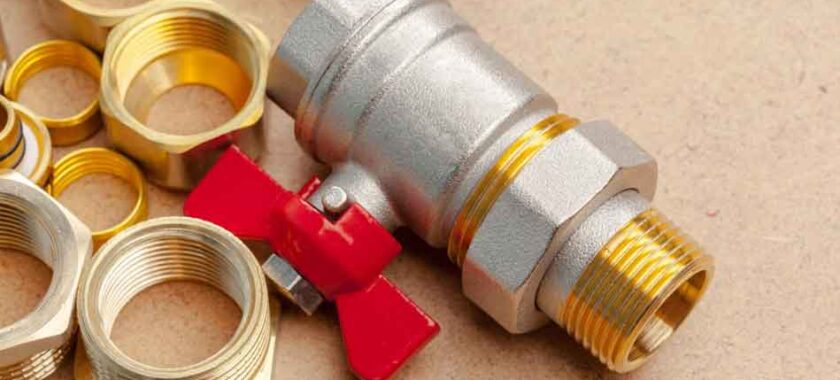Selecting the right plumbing materials is not just a matter of preference; it’s a decision that impacts the entire plumbing system’s functionality and durability. At ProFlush, we understand the significance of this choice. This comprehensive guide aims to assist you in making informed decisions, ensuring your plumbing needs are met with the highest standards of quality and durability.
1. Understanding Different Pipe Materials
- PVC Pipes: At ProFlush, we recognize PVC pipes for their lightweight and corrosion-resistant properties, making them a cost-effective choice for residential plumbing and sewer applications. Their ease of installation also makes them a popular choice for both DIY enthusiasts and professional projects.
- Copper Pipes: Renowned for their longevity and reliability, copper pipes are a top pick for hot and cold water delivery. Their recyclability also makes them an environmentally friendly option in the plumbing industry.
- PEX Pipes: Known for their flexibility, PEX pipes simplify the process of retrofitting in existing homes. They are also resistant to scale and chlorine, making them a durable choice for residential plumbing.
2. Choosing the Right Fixtures
- Faucets and Taps: Ensure they are compatible with your water pressure system. The right faucet not only complements the style of your bathroom or kitchen but also needs to function efficiently with your home’s water pressure. A study by the University of New South Wales on water efficiency in Australian homes found that choosing fixtures compatible with your system can lead to significant water savings.
- Showerheads: Consider water efficiency and pressure. Selecting the right showerhead is crucial for a comfortable and eco-friendly shower experience. Modern showerheads come with various settings that can help conserve water while still providing a satisfying shower. For the latest updates on water-efficient technologies, check out ABC News, one of Australia’s leading news channels, offering insights into new and innovative home improvements.
3. Importance of Quality Jointing Materials
- Sealants and Tapes: Essential for preventing leaks, these materials are a staple in both routine and emergency plumbing services. Choosing the right sealant or tape can be the difference between a quick fix and a recurring problem. In emergency situations, such as a sudden leak or burst pipe, having the right sealant can provide a temporary, yet vital, solution until professional help arrive. Remember, while DIY solutions can be handy in a pinch, for serious issues, it’s always best to call in the experts from a reliable emergency plumbing service like ProFlush.
4. Tools for the Trade
Wrenches and Cutters: Essential tools in any plumbing services toolkit, wrenches and cutters are a must-have for both DIY enthusiasts and professionals tackling plumbing projects.
5. Eco-Friendly and Sustainable Options
Green Plumbing: Embrace eco-friendly materials and technologies for sustainability in your plumbing choices. Sustainable plumbing solutions not only reduce environmental impact but also offer long-term cost savings through efficient water and energy use. From low-flow fixtures to solar water heaters, green plumbing is an investment in both the planet’s future and your own.
6. The Role of Valves in Your Plumbing System
Valves are pivotal in controlling the flow of water in your plumbing system. There are various types of valves, each serving a specific purpose:
Ball Valves: Known for their durability and excellent shut-off capabilities, making them ideal for main water shut-off points.
Check Valves: These prevent backflow, ensuring water flows in one direction, crucial for maintaining the integrity of your plumbing system.
7. The Significance of Pipe Size and Diameter
Selecting the correct pipe size is not just about ensuring a snug fit; it’s about optimizing water flow and pressure. The diameter of your pipes should correspond to the water demand of your household. Oversized pipes can lead to low water pressure, while undersized pipes can cause noisy and inefficient systems.
8. The Impact of Water Pressure on Your Plumbing
Water Pressure: Water pressure is a critical factor in your plumbing system. According to industry standards, ideal home water pressure should be between 40-60 psi. Too high, and it can stress your pipes and fixtures, leading to leaks and bursts. Too low, and it can result in poor water flow and inefficient system performance. Understanding the water pressure requirements of your fixtures and appliances is key. For more detailed information on optimal water pressure settings and management, check out this guide from Home Water Works.
9. The Importance of Corrosion Resistance
Corrosion can significantly shorten the lifespan of your plumbing materials. Choosing materials that resist corrosion, such as copper or PEX, can save you from frequent replacements and repairs.
10. Thermal Expansion Considerations
Materials expand and contract with temperature changes. In plumbing, this can lead to leaks or pipe bursts if not properly accounted for. Materials like PEX are more flexible and can handle these changes better than more rigid materials.
11. The Advantages of Modular Plumbing Systems
Modular plumbing systems, which involve pre-assembled components, offer several benefits. They reduce installation time, minimize errors, and ensure a high level of consistency and quality in the plumbing work.
12. The Future of Plumbing: Smart Plumbing Technologies
The integration of smart technology in plumbing is revolutionizing the industry. Smart leak detectors, automated shut-off systems, and Wi-Fi-connected appliances offer enhanced control, efficiency, and prevention of major water damage.
13. The Role of Insulation in Plumbing
Proper insulation of your plumbing pipes is essential, especially in colder climates. It prevents pipes from freezing and bursting, and also helps in maintaining the desired temperature of the water, reducing energy costs.
14. Local Plumbing Codes and Regulations
It’s crucial to be aware of and comply with local plumbing codes and regulations. These codes ensure safety, efficiency, and reliability of your plumbing system. Non-compliance can lead to legal issues and costly rectifications. Understanding Plumbing Codes.
15. The Importance of Professional Installation
While DIY can be tempting, professional installation by a licensed plumber like ProFlush ensures that your plumbing system is set up correctly, efficiently, and safely. Professionals have the expertise to handle complex installations and troubleshoot any issues that may arise.
16. Regular Maintenance: The Key to Longevity
Regular maintenance of your plumbing system can prevent major issues and extend the life of your plumbing materials. Scheduling routine checks with ProFlush can help identify potential problems before they escalate.
17. The Cost-Effectiveness of Quality Materials
Investing in high-quality plumbing materials might seem expensive upfront, but it’s cost-effective in the long run. Quality materials require fewer repairs and replacements, saving you money over time.
18. Environmental Considerations in Plumbing
Choosing environmentally friendly plumbing materials and systems not only benefits the planet but can also lead to reduced water and energy bills. Eco-friendly options like low-flow fixtures and tankless water heaters are worth considering.
Conclusion
Choosing the right plumbing materials is a balance between quality, functionality, and budget. At ProFlush, we’re committed to guiding you through this process. For expert advice and top-notch plumbing services, contact ProFlush today.
Frequently Asked Questions
Copper and PEX are known for their longevity and reliability.
It’s possible, but consulting with a professional like ProFlush is recommended.
Initially, they might be, but they offer long-term savings and environmental benefits.
It depends on the material and usage, but generally every 5-10 years.
PVC and PEX are resistant to environmental elements.




